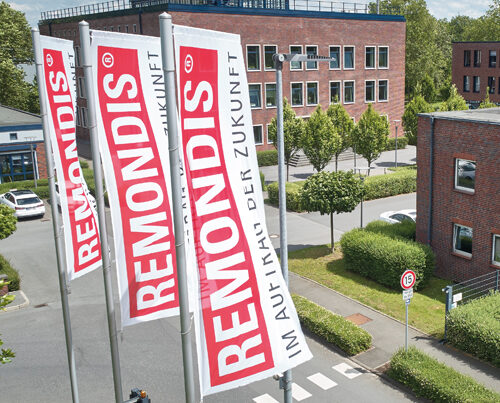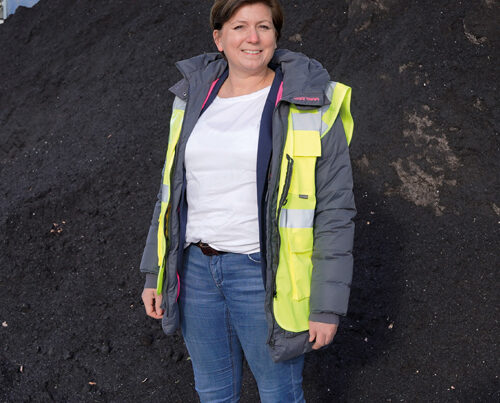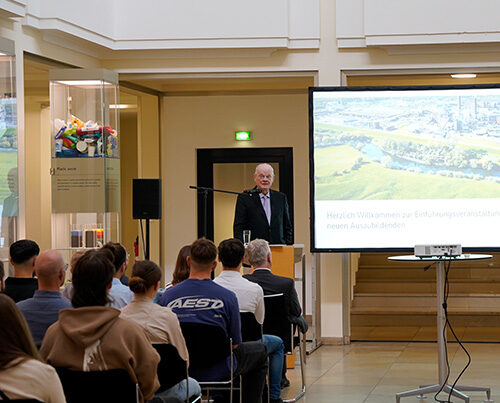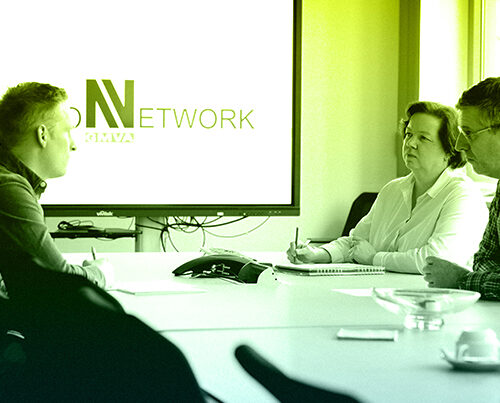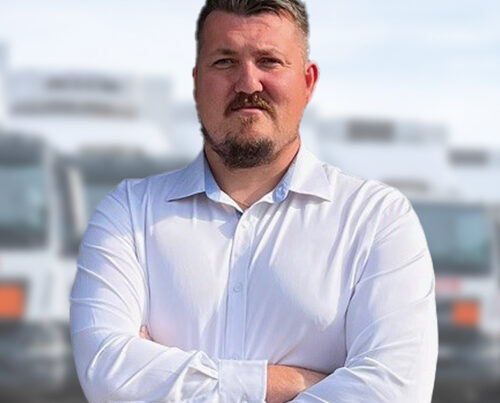People’s lives are rarely a straight path and going to school and getting a job may be easy in theory. These things are often far more difficult in real life though. “No-one wanted to take me on because I had a child,” explained Jacqueline Ehrenberg, who is now happily working as a driver of an articulated lorry at REMONDIS Industrie Service GmbH in Bramsche. She has a mischievous smile, especially when she talks about her colleagues (“I’ve taken them all to my heart”), and is proud of her lorry with its ‘Jacky’ name plate.
Life has not always been easy for this 25-year-old single mum: a special-needs school, a school leaving certificate, a failed application to the Bundeswehr, falling pregnant at a young age. And then? The name of her daughter, Lotta, has been tattooed on her lower arm and this lively six-year-old is at the centre of everything she does. Her other focus is her work. “I don’t like taking holiday. I prefer to be working,” Jacqueline Ehrenberg said. And it certainly wasn’t a given that she made it into this particular profession.
“I sent out a whole load of applications to try and find an apprenticeship and REMONDIS was the only company that actually answered me,” she continued and is still surprised by this lack of replies. There’s a skills shortage? Hardly surprising if employers fail to respond to the applications sent to them.
The fact that Jacqueline Ehrenberg was able to become one of the first women HGV drivers at REMONDIS in Bramsche was not something that could be taken for granted; and yet you could say she was almost born into this profession – a profession that is still very much male-dominated. “My mother’s an HGV driver, she drives a bus now, my father’s an HGV driver, he drives a concrete mixer truck, and my uncle is as well,” she said laughing. She’s interested in all things technical and likes jobs where she has to roll up her sleeves and get hands on. When she’s not working, she can be found doing diamond painting – a creative pastime where tiny stones are stuck onto a canvas to make a picture.
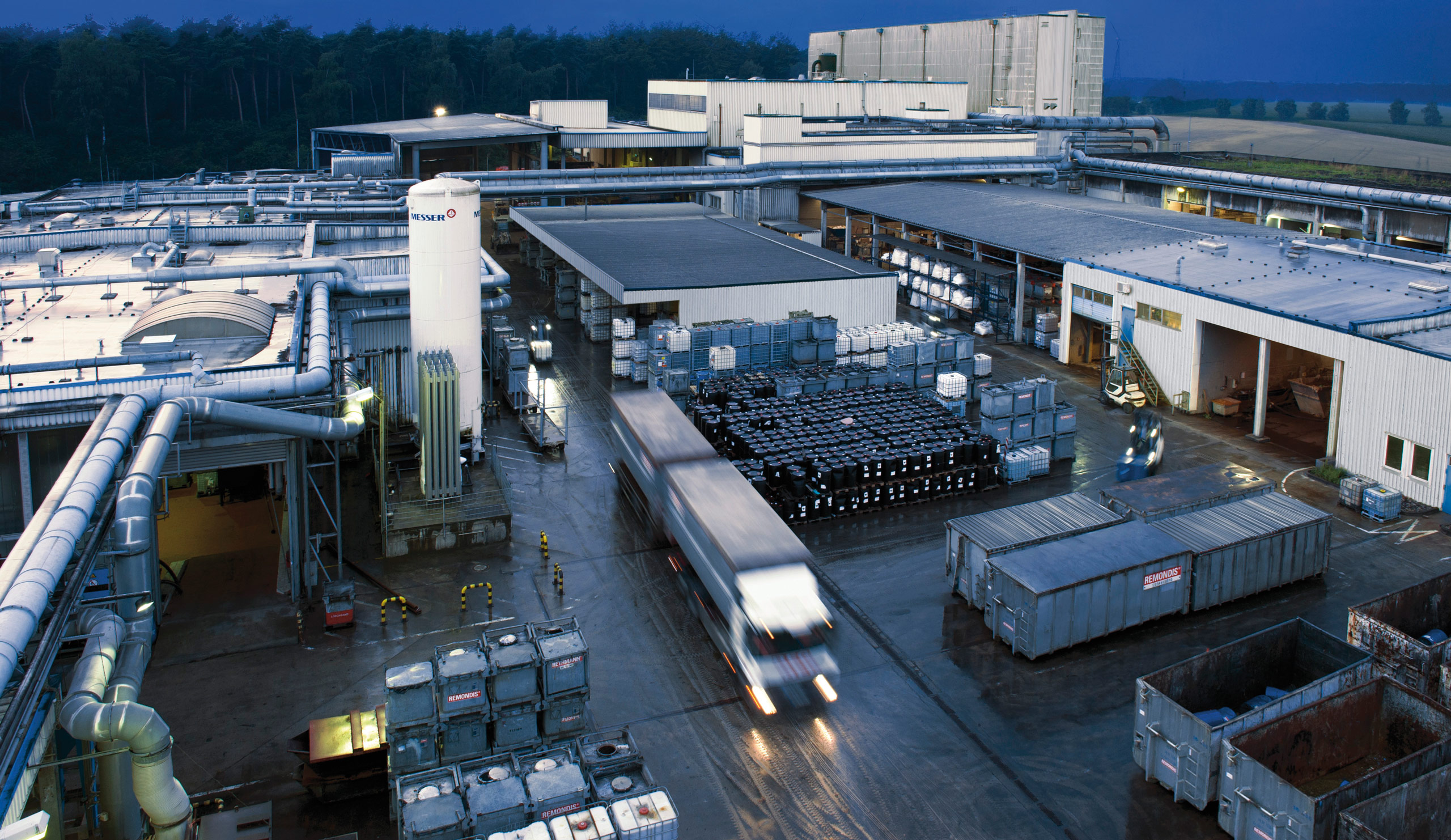

“We’re really open here at Bramsche. We focused, for example, on the topic of inclusion years ago. And we want to fundamentally strengthen the sense of community here and show again and again that every single person in this company is important.”
Leo Gerbus, works council chairman of REMONDIS Industrie Service
Working as a team is best
This REMONDIS branch, located on the banks of the Mittelland Canal, is special in a whole number of ways. Branch manager Christian Deing has a modern attitude towards work, apprenticeships and team spirit. “We both promote and have a sense of belonging,” he explained as he knows that “working as a team is best.” This also means that many things are planned, implemented and assessed together with the works council, which is also considered a key part of the team. “We’re on really good terms with the works council,” Christian Deing stressed, glancing over at the chairman of the works council Leo Gerbus. This experienced REMONDIS employee grinned and nodded in agreement before adding: “We’re really open here at Bramsche. We focused, for example, on the topic of inclusion years ago. And we want to fundamentally strengthen the sense of community here and show again and again that every single person in this company is important.” The topic of inclusion acted a bit like a catalyst for creating strong social partnerships, Leo Gerbus went on to explain. He himself coaches a girls’ football team in his spare time. It’s important to support young people, to have a regional network and to help shape the future.
This also means making sure the employees stay healthy, organising health days, offering further training courses and making the most of social platforms and apprenticeship careers fairs. All this and a great deal more are important for a good company culture, Christian Deing believes. At the moment, his branch has 22 apprentices learning six professions in all – and they are all likely to be taken on at the end of their course. The high staff retention rate there is a sign of a satisfied workforce.
And the people that didn’t (or still don’t) have it so easy were (or are) given the extra support they need. Back in 2021, the Bramsche branch was presented with the Lower Saxony Social Prize, in the ‘social in the workplace’ category, honouring its strong commitment to inclusion.

Christian Deing and Leo Gerbus

The ‘Fit for the Future’ certificate
And that’s not the only prize it has received. In 2022, Christian Deing and his team in Bramsche were given a certificate in recognition of the way they and the works council work together to support the employees and specialists-to-be and ensure they have a secure future. It was one of four companies to be presented with the ‘Fit for the Future’ (Zukunftsfest) Certificate in the ‘Shaping digitisation in social partnership’ (Sozialpartnerschaftlich die Digitalisierung gestalten) category – a certificate that was awarded by the German state of Lower Saxony for the very first time. Initiated by the Ministry for Social Affairs, Employment, Health and Equal Opportunities of Lower Saxony and the Demografieagentur, this award honours exceptional achievements of companies and government offices across the state. REMONDIS stood out in a number of ways, including its integration of people with disabilities, its social media stories about its apprenticeship courses and its digital application processes – a reflection of how the future should be.
A proud HGV driver
Jacqueline Ehrenberg has also benefited from the special team spirit at this company and is showing her appreciation by doing a good job every day – a genuine win-win situation. As far as REMONDIS is concerned, they were a good fit from the start: “The chemistry was just right – and still is,” said Jacqueline Ehrenberg nodding in agreement. She joined the company as a passenger assistant, did her apprenticeship to become an HGV driver and is now proud to be working in this profession. REMONDIS paid for her college books and always found a solution whenever there was a problem. And then covid hit and Jacqueline Ehrenberg was unable to work all of her hours as she had to look after Lotta. “We sat down and discussed the situation and then I made sure that I had made up the hours I’d missed by the time I finished my apprenticeship,” she continued. And when things go wrong, she can always turn to her colleagues for help: “I go to Andreas Kamp the fleet manager, for example, if I need to discuss something and we always find a solution.”
She’s “super happy” now. Looking back, though, she knows that she could be a bit of a “beast” during her apprenticeship. Her trainer Thorsten Wachtel could certainly tell you a thing or two about that, she said grinning. Doing an apprenticeship and starting a job were simply not always a bed of roses – for either side. Today, she swears by her team – especially her favourite colleague Neil (named after the astronaut Neil Armstrong) Lewis – and the great atmosphere at the branch. And now Jacqueline Ehrenberg, who calls herself a “spirited driver”, has become a role model for other young women who wish to follow in her footsteps and become an HGV driver. Sometimes she takes them with her when she’s out on the road and tells them that they can take their future into their own hands – just as she did!
Image credits: REMONDIS







